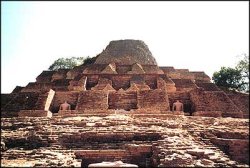KâLâMA SUTTA

The Kàlàma Sutta, more properly called the Kesaputtiya Sutta, is one of the Buddha's most famous and interesting discourses (A.I,188). Numerous wandering teachers used to come to the town of Kesaputta promoting their own religion and disparaging other religions. The townspeople eagerly listened to these teachers but all the conflicting opinions and claims left them completely confused. When the Buddha came to Kesaputta the people said to him: `We have doubt, we are confused as to which of these teachers are speaking truth and which falsehood.' The Buddha replied to them saying: `Do not rely on revelation, tradition, hearsay, the sacred scriptures, logical reasoning, inferential reasoning, reflection, pondering, on the apparent competence of the speaker, or just because you think ßHe is our teacherû. But when you know for yourself: ßThese things are good, laudable, praised by the wise and when practised lead to your welfare and happinessû then you should follow them.' Thus, rather than take this opportunity to promote his own teaching, the Buddha encouraged the Kàlàmas to think in ways that would help them see what is and is not a valid means of knowledge. And for the Buddha, personal experience is a better guide to truth than these ten other means.
Kesaputta, where the Buddha delivered the Kàlàma Sutta, is now identified with the village of Kesariya about 50 kilometres northwest of Vesàli in the modern Indian state of Bihar. A large ancient ståpa marks the place.